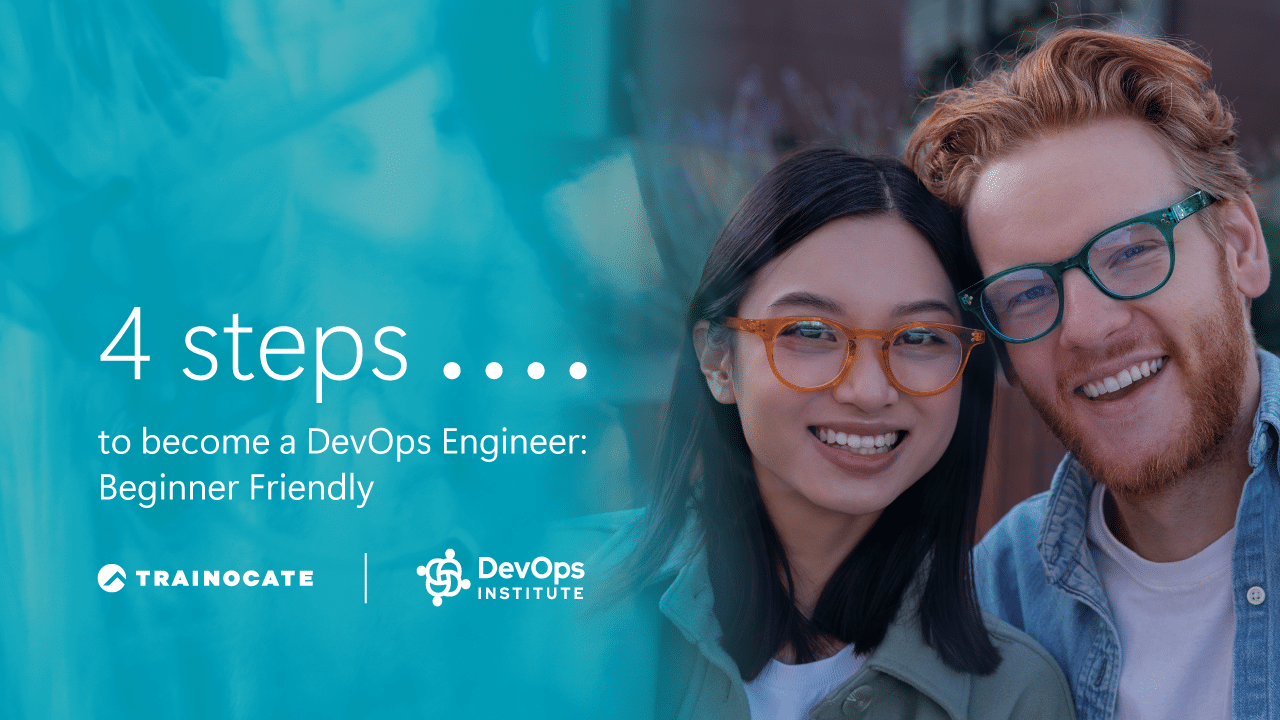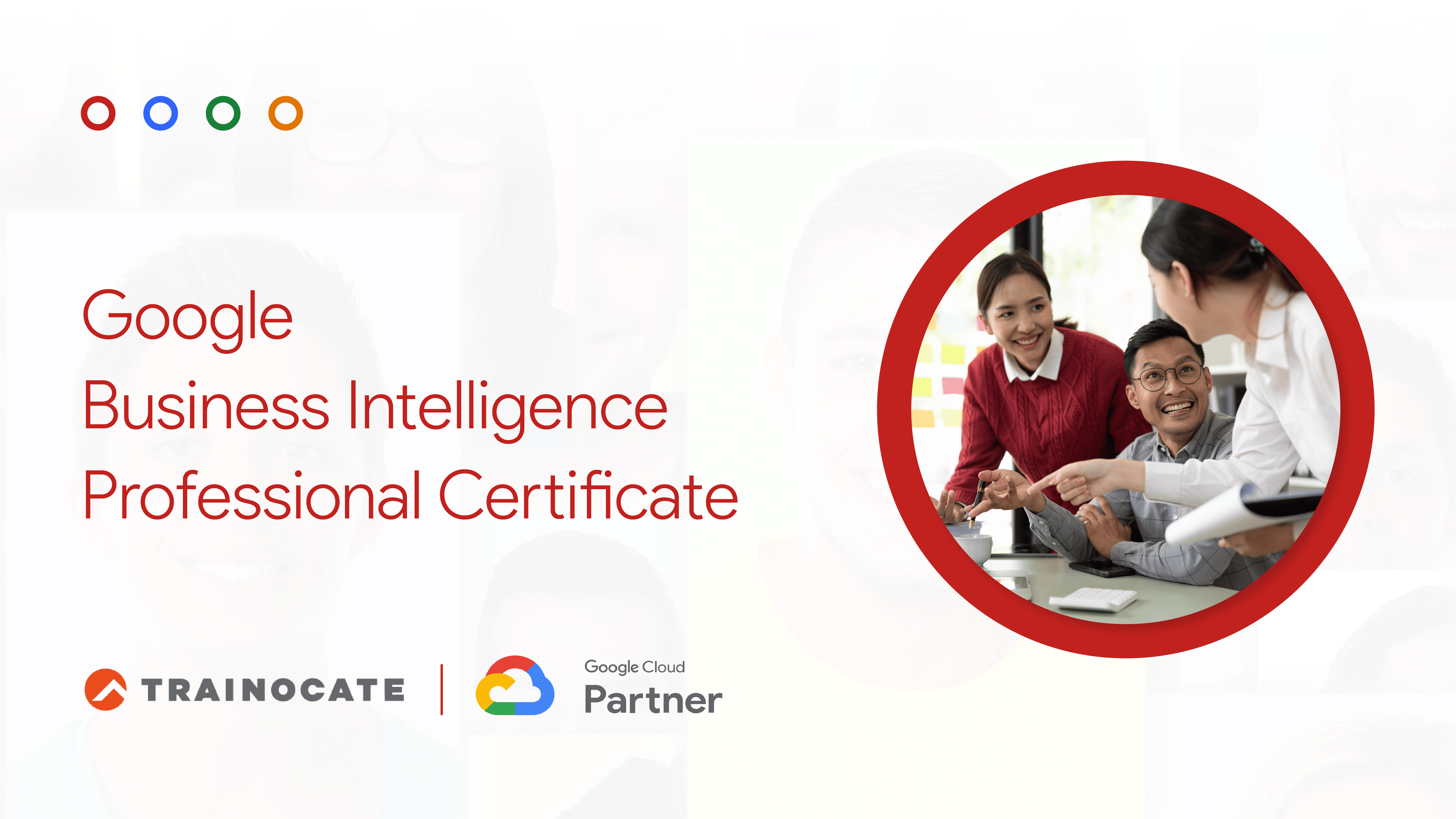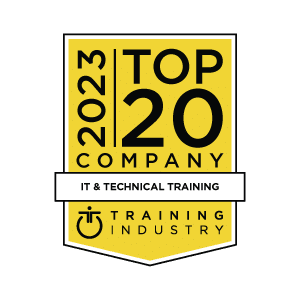4 steps to become a DevOps Engineer: Beginner Friendly
4 steps to become a DevOps Engineer: Beginner Friendly
Introduction
Are you ready to embark on an exciting journey into the world of DevOps Engineering? Imagine a place where technology, collaboration, and efficient software delivery come together to create something extraordinary.
“It’s no wonder that DevOps is considered one of the top IT skills in 2023.”
In today’s fast-paced IT landscape, many organizations face a common challenge: they struggle to find enough skilled professionals.
In fact, an astounding 31% of IT leaders have identified this as the biggest obstacle for their organizations. But fear not! This is where upskilling becomes a game-changer.
As organizations worldwide tackle issues like managing technical debt and limited budgets that affect their digital transformation, the demand for talented DevOps Engineers keeps growing.
In this guide, we’ll explore how you can acquire the right mix of technical expertise and essential skills to thrive in this exciting field. Get ready to embark on an adventure that will shape your future in the world of DevOps Engineering.
Make sure you read until the end because we have a bonus tip for you. Let’s jump in!
Table of contents
Step 1: Understanding the Basics of DevOps Engineering
Step 2: Discovering the Importance and Demand of DevOps in Today’s IT Industry
Step 3: Developing Essential Skills for Succeeding in DevOps Engineering
Step 4: Kickstart Your Journey in DevOps Engineering with the Best Foundation Course

Step 2: Discovering the Importance and Demand of DevOps in Today’s IT Industry
In today’s rapidly evolving IT landscape, the significance of DevOps cannot be overstated. It has emerged as a leading discipline within organizations, enabling them to achieve greater agility and efficiency in software delivery.
According to DevOps Institute Upskilling IT 2023 report:
- 49% of organizations primarily apply DevOps frameworks in their IT environments, surpassing methodologies like Agile (36%) and ITIL (31%).
- When it comes to recent or planned hirings, 29% of organizations specifically sought DevOps Engineers, outpacing job titles such as Software Engineer (26%) and Automation Architect (22%).
These numbers underscore the growing recognition and adoption of DevOps as a crucial driver of success in the industry. More importantly, they highlight the high demand for skilled DevOps professionals who possess the expertise to bridge the gap between development and operations.
Fun Fact: According to Global Market Insights, the DevOps market skyrocketed to over USD 8 billion in 2022 and is projected to grow at a speedy 20% CAGR from 2023 to 2032.
In light of these findings, it becomes evident that acquiring DevOps knowledge and skills can significantly enhance your career prospects in the IT industry.

Step 3: Developing Essential Skills for Succeeding in DevOps Engineering
To thrive as a DevOps Engineer, it’s crucial to develop a range of essential skills that will enable you to effectively navigate the complexities of this dynamic field.
Here are the key areas to focus on:
- Understanding DevOps Principles: Explore the core principles of DevOps, including the Three Ways, Theory of Constraints, Chaos Engineering, and the concept of Learning Organizations.
- Mastering DevOps Practices: Gain expertise in key practices such as Continuous Delivery, Site Reliability & Resilience Engineering, DevSecOps, and effective collaboration using ChatOps and Kanban.
- Embracing Automation and Toolchains: Develop proficiency in CI/CD, cloud computing, containerization with technologies like Kubernetes, and architecting efficient DevOps toolchains for automation and streamlined software delivery.
- Measuring and Improving: Learn to utilize metrics and reporting to measure technical and business aspects of DevOps. Use insights to drive continuous improvement and make data-driven decisions.
By focusing on these core skills, you’ll be well-prepared to thrive in the fast-paced and collaborative world of DevOps engineering.

Step 4: Start Your DevOps Engineering Journey with the Right Foundation Course
That’s a lot of information to digest, and we understand that it can be overwhelming. But don’t worry, we have the perfect program for you if you’re unsure where to start. Introducing the DOF: DevOps Foundation Course — a comprehensive learning experience designed to kickstart your DevOps journey.
With this beginner course, you’ll gain a deep understanding of core DevOps principles, practices, and methodologies. It’s the ideal way to get started if you’re passionate about DevOps but need guidance on the path to success.
For a limited time, we’re offering an exclusive promotion. Instead of the original price of RM5000, you can now enroll in the virtual course for just RM3,500 (including exam), or choose the immersive classroom experience for RM3,700 (including exam).
By enrolling in this course, you’ll gain invaluable insights, earn a coveted certification, and unlock the door to exciting career opportunities. Don’t wait to fuel your career growth and become a competent DevOps Engineer. The future of DevOps is waiting for you, so get started today!

BONUS TIP: Advancing Your DevOps Career
The beauty of completing a DevOps foundation course is that it opens up a world of possibilities for your DevOps journey. Once you’ve finished the foundation course, you have the freedom to choose your path. Consider exploring specialized roles and certifications that can enhance your expertise and career prospects. Here are a few options to consider:
-
DevOps Engineer: If you enjoy automation and collaborating with teams, venture into becoming an official DevOps engineer. This role focuses on automating processes, streamlining workflows, and ensuring efficient software delivery and infrastructure management.
Check out our DOEF: DevOps Engineering Foundation to learn more.
- DevOps Tester: Are you passionate about quality assurance? Consider becoming a DevOps tester. Testers in DevOps play a crucial role in ensuring software quality and reliability. They plan, create, execute, and analyze tests to identify issues and ensure compliance with standards.
Find out more with our CTF: Continuous Testing Foundation to advance your career as a DevOps tester. - DevOps Leader: If you enjoy guiding and supporting teams, becoming a DevOps leader might be your path. As a DevOps leader, you’ll provide sponsorship, education, motivation, and monitoring to ensure successful collaboration and delivery.
Check out our DOL: DevOps Leader to become a DevOps leader today. - Security Engineer: If you have a passion for ensuring the security of software and systems, consider advancing as a Security Engineer. This crucial role involves collaborating with teams to implement robust security practices and protect valuable assets.
With DSOF: DevSecOps Foundation, you’ll gain a comprehensive understanding of DevOps security practices, making you a valuable asset as a Security Engineer.
By exploring these roles and pursuing relevant certifications, you can expand your skill set, demonstrate expertise, and unlock new opportunities in the dynamic field of DevOps.
Didn’t find the right DevOps certifications you desire? Be sure to check out our blog on “Top 8 DevOps Certifications” to explore more paths and possibilities in the field.

FAQs
Q1: What is DevOps Engineering?
DevOps Engineering is a software development approach that combines development and operations practices to achieve shorter development cycles, faster innovation, and higher quality software.
Q2: What skills do I need to become a DevOps Engineer?
You need a range of technical and soft skills, including knowledge of cloud computing, automation tools, programming languages, collaboration and communication skills, and a willingness to continuously learn and adapt. A DevOps Foundation
Q3: What is the benefit of completing a DevOps Foundation Course?
Completing a DevOps Foundation Course can provide a solid foundation of knowledge and skills needed to pursue a career in DevOps. It can also help you explore specialized roles and certifications that can enhance your expertise and career prospects.
Q4: What specialized roles can I pursue in DevOps?
Some specialized roles in DevOps include DevOps Engineer, DevOps Tester, DevOps Leader, Security Engineer.
Q5: How can I stay up-to-date with the latest trends and developments in DevOps?
You can stay up-to-date with the latest trends and developments in DevOps by attending conferences and events, following industry leaders and experts on social media, and continuously learning and practicing new skills.
Q6: Where can I access more IT training and certification programs related to DevOps?
For a wide range of IT training and certification programs, including those related to DevOps Engineering, visit Trainocate Malaysia. Trainocate offers comprehensive training courses and certifications to help you enhance your skills and advance your career in the IT industry. Explore now!






